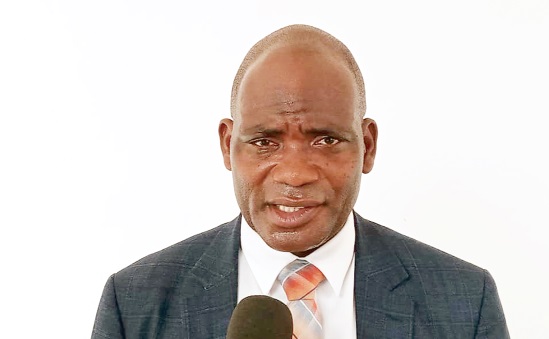
Pro VC calls for increase in climate finance to Africa
The acting Pro-Vice-Chancellor of the University of Energy and Natural Resources (UENR), Professor John Kofi Mensah Kuwornu, has bemoaned the slow flow of climate finance to Africa as compared to Europe and Asia.
He said Climate Policy Initiative (CPI) had estimated that Africa required $277 billion annually to implement its Nationally Determined Contributions (NDCs) and meet its 2030 climate goals.
Prof. Kuwornu said it would cost about $2.8 trillion between 2020 and 2030 to implement Africa's NDCs.
“However, Africa received approximately $30 billion. Current finance flows are only 11 per cent of the $277 billion needed annually and 60 per cent of the total climate finance is concentrated in 10 countries, while the remaining 40 per cent is split among 45 African countries,” he stated.
Prof. Kuwornu, who is also the Dean of School of Agriculture and Technology, was delivering the 8th congregation public lecture on the theme: “Climate change Adaptation investment in Africa: The role of governments and non-state institutions” in Sunyani in the Bono Region last Friday.
Huge gap, cost
The Pro-Vice-Chancellor explained further that the African continent received only 14 per cent of the contribution to climate finance as compared to those in other regions such as South Asia, 38 per cent, East Asia and Pacific 39 per cent, and Latin America and Caribbean 48 per cent.
Prof. Kuwornu said the gap was huge and called on African leaders and private institutions to increase their contribution to climate finance.
He said it was unfair that Africa, the poorest continent that had been greatly impacted by the adverse effects of climate change, received less than 12 per cent of the climate change-related funds spent globally.
Prof. Kuwornu said even though the world was experiencing the heat of the climate change, Africa was heavily affected.
He appealed to the developed countries and financial institutions to fulfil their commitments to provide climate finance and technology transfer to Africa in order to close the climate finance gap.
Threat to Ghana
Prof. Kuwornu said agriculture, fisheries, forestry and land sectors were key in the country, which were vulnerable to climate change and called for special attention to be given to the sectors in times of climate finance.
He said there were several devastating effects of climate change on both human health and environment in the country.
Prof. Kuwornu said the increase in temperature caused heat-related diseases such as stroke and the spread of waterborne diseases.
He said climate change had also turned the agricultural system upside down, making it very difficult for farmers to determine when to plant.
Prof. Kuwornu said the country's energy systems were also under threat, explaining that the heat could reduce the water levels to cause power crisis.
He appealed to the government to invest heavily or focus more on renewal energy to avert any power crisis.
Ghana’s finance flow
Prof. Kuwornu said the current climate finance flow to Ghana was $830 million and urged individuals, private sector and non-governmental organisations to step up support for the government to increase climate financing.
The government also needed to allocate significant financial resources from the budget and other sources to mitigate the climate change, he said.
He expressed the need for the establishment of Climate Focus Units at Energy Commission, the Forestry Commission and the Ministry of Finance to mitigate climate change.
"The government is already playing its role to mitigate the climate change, but more needed to be done in respect of valuable groups such as women farmers, youth and aged to adopt climate change," he said.
For his part, the Vice-Chancellor of the University, Prof. Elvis Asare-Bediako, commended the public lecture committee for coming out with recommendations aimed at mitigating climate change.
He urged the participants to identify the challenges and find solutions to mitigate climate change.
